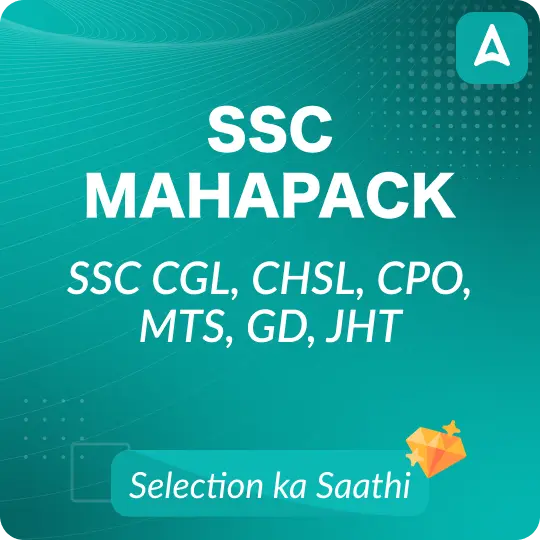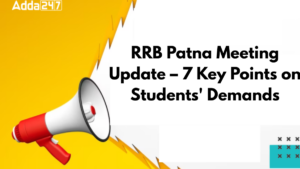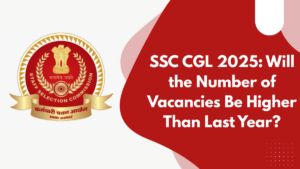Table of Contents
The Staff Selection Commission (SSC) offers numerous career opportunities for 12th pass students in various government departments. This article will guide you through the preparation process for different SSC exams you can take after completing your 12th standard education.
SSC Exams in which candidates can appear After passing 12th Standard
1. Constable (GD) in CAPFs, SSF, and Rifleman (GD) in Assam Rifles Examination
2. Multi-Tasking (Non-Technical) Staff and Havaldar (CBIC & CBN) Examination
3. Combined Higher Secondary (10+2) Level Examination
Let’s explore each exam and discuss preparation strategies:
Constable (GD) Examination
The Staff Selection Commission conducts the Constable GD examination to recruit constables in the Central Armed Police Forces and Assam Rifles. Eligibility for this examination requires passing the 10th class. It consists of four stages, which are described below:
Exam Pattern:
– Computer Based Examination (CBE)
– Physical Efficiency Test (PET)
– Physical Standard Test (PST)
– Medical Examination
Preparation Strategy:
a) For Computer Based Examination (CBE):
– Focus on General Intelligence and Reasoning, General Knowledge, Elementary Mathematics, and English/Hindi.
– Practice previous years’ questions and take mock tests.
– Improve your speed and accuracy in solving problems.
b) For Physical Efficiency Test/ Physical Standard Test:
– Start a regular fitness routine focusing on running, long jump, and high jump.
– Maintain overall physical fitness.
Multi-Tasking (Non-Technical) Staff and Havaldar Examination
The Staff Selection Commission conducts a MTS examination to recruit Multi-Tasking (Non-Technical) Staff and Havaldars in various ministries and departments of government of India. Eligibility for this exam is matriculation or equivalent. The MTS exam is a single-day examination, while for Havaldar posts, it includes a computer-based test and a physical efficiency test.
Exam Pattern:
– Computer Based Examination
– Physical Efficiency Test (PET)/Physical Standard Test (PST) for Havaldar post
Preparation Strategy:
– Focus on Numerical and Mathematical Ability, Reasoning, General Awareness, and English Language.
– Practice time management for each section.
– For Havaldar post, maintain physical fitness.
Combined Higher Secondary (10+2) Level Examination
The Staff Selection Commission conducts the CHSL Examination to recruit for Group C positions in various government offices. To be eligible for this examination, candidates must have passed 12th grade (Science stream with Mathematics for some Data Entry Operator posts). Other details of the examination are given below:
Exam Pattern:
– Tier-I: Computer Based Examination with four sections
– Tier-II: Computer Based Examination with three sections including Skill Test/Typing Test
Preparation Strategy:
– Master basic English, General Intelligence, Quantitative Aptitude, and General Awareness.
– For Tier-II, focus on advanced Mathematical Abilities, Reasoning, English Comprehension, and Computer Knowledge.
– Practice typing skills for relevant posts.
In addition to these exams, there are also other exams conducted by SSC such as SSC CGL and SSC CPO that require a graduation degree. However, you can begin preparing for these exams after completing your 12th grade by following the general strategy outlined below.
Focus on core subjects:
– English Language and Comprehension
– General Intelligence and Reasoning
– Quantitative Aptitude/Elementary Mathematics
– General Awareness
For English:
– Improve vocabulary, grammar, sentence structure
– Practice spotting errors, fill in the blanks, synonyms/antonyms
– Work on reading comprehension passages
For Reasoning:
– Practice both verbal and non-verbal reasoning questions
– Focus on topics like analogies, classification, series completion, coding-decoding, etc.
For Quantitative Aptitude:
– Master basic arithmetic, algebra, geometry, and mensuration
– Practice problems on percentages, profit/loss, time & work, etc.
– For higher level exams, include trigonometry and statistics
For General Awareness:
– Stay updated on current affairs
– Focus on Indian history, geography, polity, economy, science & tech
– Read newspapers and magazines regularly
General tips:
– Solve previous year question papers and take mock tests
– Improve time management skills
– For physical tests, maintain overall fitness
Strategy:
– Start preparation early
– Make a study schedule covering all subjects
– Focus more on your weak areas
– Take regular breaks to avoid burnout
Stay motivated:
– Set small, achievable goals
– Join study groups or online forums for peer support
By following this complete approach and adjusting it to the specific SSC exam you’re aiming for, you can prepare well after 12th. Remember to stay steady in your efforts and keep practicing regularly.
Preparing for SSC exams after 12th requires dedication, consistent effort, and a well-planned strategy. By understanding the specific requirements of each exam and following a structured preparation approach, you can increase your chances of success. Remember to start your preparation early, stay motivated, and give your best effort. With the right mindset and preparation, you can turn your dream of a government job into reality. Good luck with your SSC exam preparation!




 RRB Patna Meeting Update – 7 Key Points ...
RRB Patna Meeting Update – 7 Key Points ...
 SSC CGL 2025: Will the Number of Vacanci...
SSC CGL 2025: Will the Number of Vacanci...
 RRB ALP Preparation Strategy 2025, Tips ...
RRB ALP Preparation Strategy 2025, Tips ...


